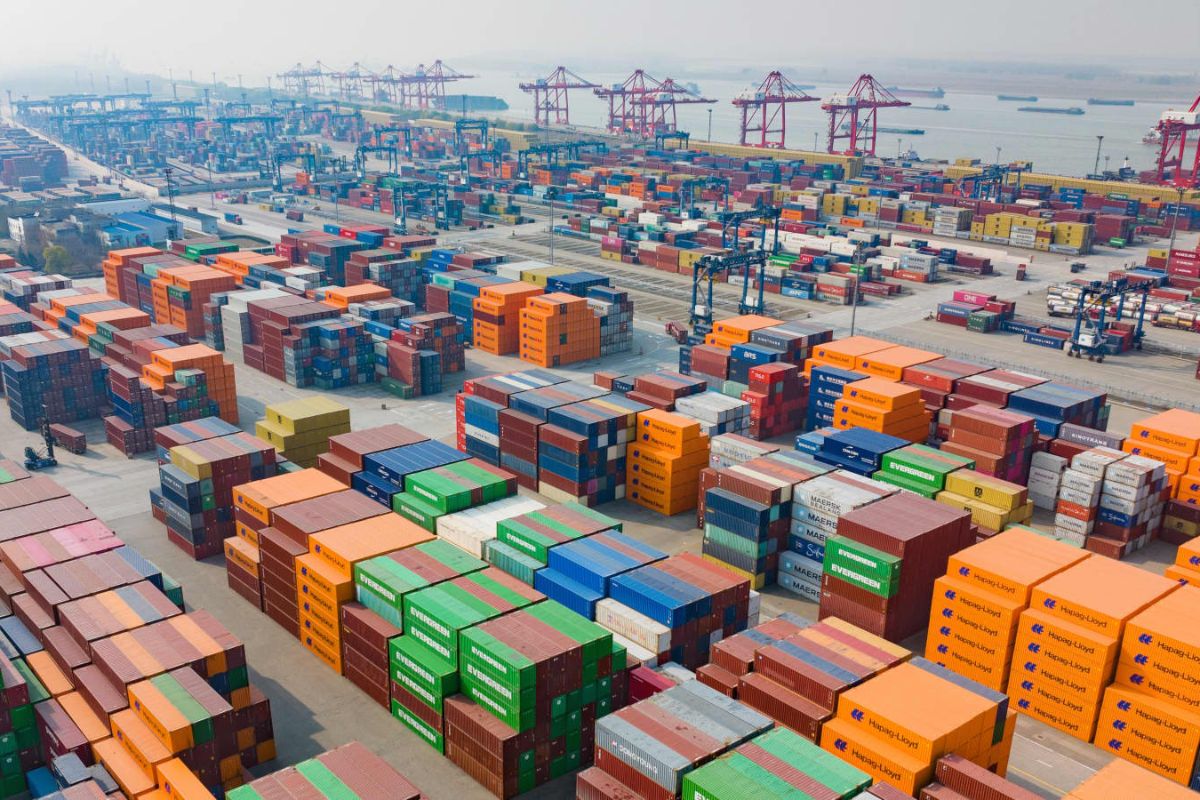“Cargo Shipments out of China for major retailers and manufacturers have ceased,” cancellations are increasing.
As more and more cargoes are canceled, the number of ships carrying clothing, electronics, furniture, and other items from China to the United States is declining.
After the Trump administration increased tariffs on China while providing a three-month reprieve on punitive duties for a large portion of the rest of the world, the sailings were scrapped.
“As essentially all shipments out of China for major retailers and manufacturers have ceased,” executive director Gene Seroka told port officials Thursday at the Port of Los Angeles, one of America’s largest gateways for imports from China, that he anticipates a 35% decline in import volumes in two weeks.
Retailers and manufacturers have shifted their supply chains and rushed products out of other Asian countries, such Vietnam and Malaysia, as a result of the trade war between the United States and China. As they prepare for the busiest shipping season this summer, when shops bring in goods for the new school year and the fall and winter holidays businesses are making snap judgments on imports.
According to Nathan Strang, director of ocean freight at Flex port, a San Francisco-based company that assists businesses in shipping cargo worldwide, bookings out of China have dropped 60% in the last week following Trump’s imposition of a series of tariffs on China that reached 145% on April 9.
Importers are changing their strategies when dealing with Chinese producers who also operate plants in other Asian countries: “They are stating that we are ceasing production in China today and beginning production in Cambodia tomorrow,” Strang stated.
In the upcoming weeks, dozens more cancelled sailings from China were scheduled to arrive in U.S. seaports. According to Alan Murphy, CEO of the Danish data company Sea-Intelligence, freight demand from China to the U.S. West Coast might drop 28% the next week, while demand at East Coast ports could drop 42%.
He remarked, “The impact is staggering.”
As importers pull in products before Trump’s rest-of-the-world tariff break ends in early July, Hapag-Lloyd’s North America CEO Stuart Sandlin said the German shipping line is witnessing a 30% drop in bookings out of China and a jump in bookings out of Southeast Asia. At the moment, 10% universal levies apply to the majority of nations.
Because they hurried in big volumes of cargoes at the beginning of the year to get ahead of any prospective duties, several manufacturers and merchants are able to stop orders.
The nation’s busiest container-port complex, the ports of Long Beach and Los Angeles, processed the equivalent of about 2.5 million import containers in the first three months of this year, a 14% rise over the same period last year.
With just 20% of this year’s seasonal inventory in stock, Redwood, California-based Balsam Hill, which sells Christmas trees and decorations both online and in-store, was forced to halt shipments into the United States, according to CEO Mac Harman.
Instead of taking the chance of producing goods they can’t sell, some Chinese firms have halted their manufacturing lines, while others are just canceling orders, according to Harman. Balsam Hill must send its products from China by August at the latest.
He stated, “We can release a lot of production that is sitting as finished goods if tariffs come down and help save Christmas.”
There are concerns that if the Trump administration strikes a trade agreement with Beijing, the sudden halt in Chinese exports and the resulting spike in demand from Southeast Asia may lead to a subsequent spike in cargo demand from China and soaring shipping costs.
This week, U.S. officials indicated that they may be amenable to a tariff cut. According to freight professionals, there would be a dramatic spike in demand and a competition for space on containerships if the taxes are suspended or drastically lowered.
“Freight rates will soar and all the ships will be jam-packed,” stated Lars Jensen, CEO of Vespucci Maritime, a consulting firm for container shipping based in Denmark.
Source : Wsj.com
Read More.
Tele2 Reports Increased Net Profit Driven by Service Revenue Growth
TSLA : Reports Quarterly Earnings This Week

Daisy Morgan is a dedicated business journalist known for her insightful coverage of global economic trends and corporate developments. With a career rooted in a passion for understanding the intricacies of the business world, Daisy brings a unique perspective to her writing, combining in-depth research with a knack for uncovering compelling stories. Her articles offer readers a comprehensive view of market dynamics, entrepreneurship, and innovation, aiming to inform and inspire professionals and enthusiasts alike.







